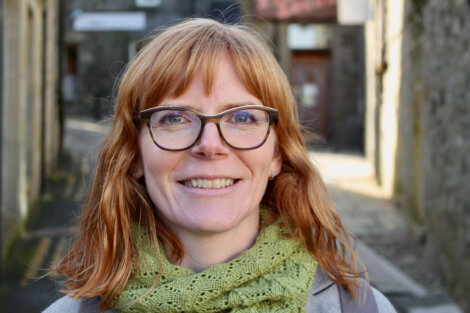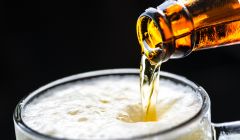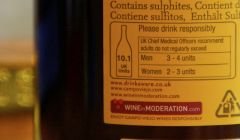Health / Minimum unit pricing has positive and negative impacts, development officer says
It comes as the minimum unit price for alcohol could rise from 50p to 65p
THE MINIMUM unit price policy for alcohol is effective – but do not forgot about the people who are negatively affected by the scheme.
That is the view of NHS Shetland’s alcohol and drugs development officer Wendy McConnachie, who was speaking ahead of plans to increase the minimum price of a unit of alcohol in Scotland by 15p going before the Scottish Parliament for approval next week.
The Scottish Government said a price increase is required to counteract the effects of inflation.
The minimum unit price of 65p has been selected as the Scottish government “seeks to increase the positive effects of the policy”.
If parliament agrees, it will take effect on 30 September 2024.
Deputy first minister Shona Robison said the proposal strikes a “reasonable balance between public health benefits and any effects on the alcoholic drinks market and impact on consumers”.
Minimum unit pricing (MUP) was introduced in 2018 with the aim of mitigating the “significant health harms caused by alcohol consumption in Scotland”, particularly targeting brands that are considered cheap relative to its strength.
The drinks industry has raised concern about the potential rise, with the GMB union for instance urging the government to reconsider its plans.
Responding to the proposal to increase the minimum unit price from 50p to 65p, McConnachie said a recent report from Public Health Scotland showed that the initiative has had a “positive impact on reducing alcohol consumption and harms”.
“There is evidence that MUP has reduced off-trade alcohol sales, particularly of cider and spirits.
“Since the implementation of MUP, hospital admissions and alcohol deaths are lower than projected, had MUP not been introduced,” McConnachie added.
Become a member of Shetland News
“This is really positive, especially at a time when alcohol deaths in Scotland remain so high. MUP as a policy would’ve disproportionately affected people in lower income brackets – they would’ve felt the price increase the most – so it’s reassuring that they have also seen the greatest reduction in harm.”
But she said while the policy is effective at a population level, “we need to remember about the people who will have suffered the negative impact of MUP”.
“Some studies into the impact of MUP showed that people who are dependent on alcohol did not decrease their consumption, which led to increased financial hardship,” McConnachie continued.
“There are reports of people spending less on essentials such as food and bills, or borrowing money to support their spending.
“Seventeen per cent of children in Scotland report living with a parent who exhibits hazardous or harmful drinking behaviours or a dependency, so decreased spending on essentials is likely to affect children.”
She suggested that minimum unit pricing appears to be a useful tool in a range of responses, which should include marketing and advertising restrictions, effective licensing policy and “good quality, adequately funded services”, including ones that support families.
“Tackling inequalities should also be front and centre,” McConnachie said.
“At an individual and community level, we can all play a part in reducing the overall use of alcohol; challenging alcohol use as a normal part of life, whilst also reducing the stigma associated with problematic alcohol use.
“The Chief Medical Officer’s low risk drinking guidelines states that people should drink no more than 14 units of alcohol per week, spread over three or more days. This is not ‘no risk’, but low risk.
“Alcohol use increases the risk of developing cardiovascular diseases and several types of cancer, including cancers of the head and neck and breast cancer, so if we want to prevent cancer, cutting down our alcohol use is a really good starting point.
“We would be really interested to hear how people in our community think we can work together to reduce harm from alcohol use.”
There are resources available on the Alcohol Change UK website, including signposting to support services, a tool to help calculate units of alcohol and a quiz to understand the impact that our alcohol use might be having on health.
In Shetland support is available from the Substance Misuse Recovery Service at the Lerwick Health Centre (01595 743006) or the Recovery Hub and Community Network in Pitt Lane (01595 744402).
Both services also provide support for families affected by a loved one’s substance use.
Folk can also visit the Shetland Alcohol and Drug Partnership website for more information.
Become a member of Shetland News
Shetland News is asking its many readers to consider paying for membership to get additional features and services: -
- Remove non-local ads;
- Bookmark posts to read later;
- Exclusive curated weekly newsletter;
- Hide membership messages;
- Comments open for discussion.
If you appreciate what we do and feel strongly about impartial local journalism, then please become a member of Shetland News by either making a single payment, or setting up a monthly, quarterly or yearly subscription.



































































